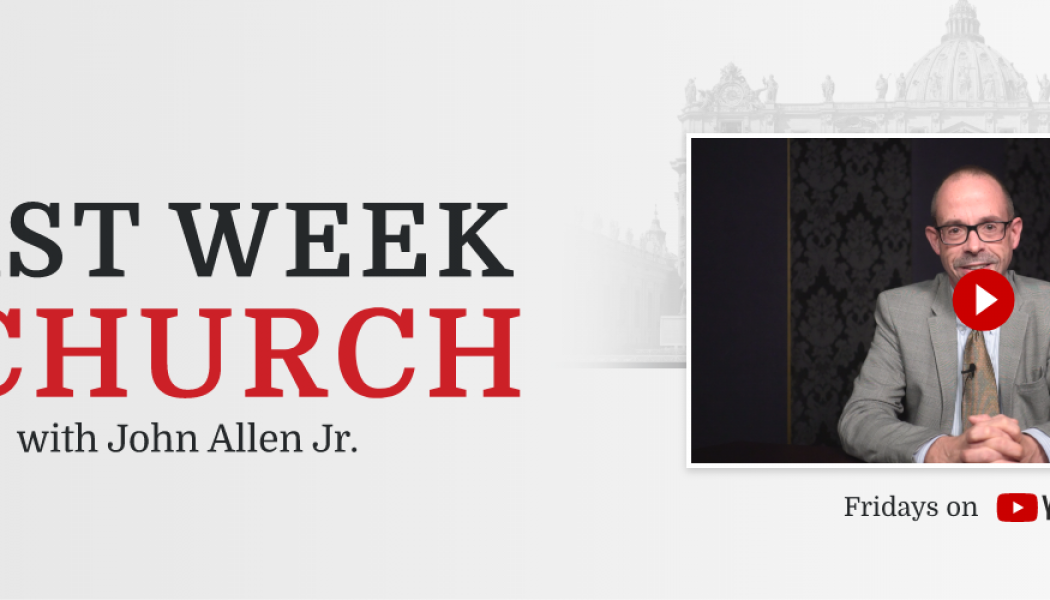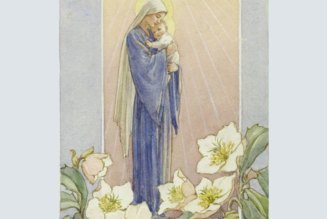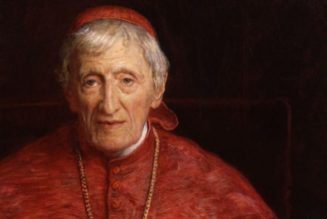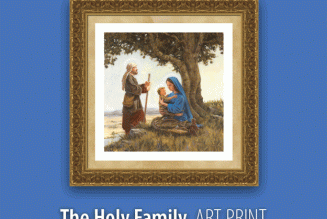ROME – In Sir Arthur Conan Doyle’s 1892 Sherlock Holmes short story “Silver Blaze,” about the disappearance of a celebrated racehorse and the murder of its trainer, the following exchange occurs.
Scotland Yard detective: “Is there any other point to which you would wish to draw my attention?”
Holmes: “To the curious incident of the dog in the night-time.”
Gregory: “The dog did nothing in the night-time.”
Holmes: “That was the curious incident.”
Holmes’ point was that no witness at the stables had said anything about hearing the guard dog barking, suggesting whoever stole the horse was well known to the dog and wouldn’t cause him to get worked up – in other words, it had to be an inside job.
The passage gave rise to the now-commonplace expression “the dog that didn’t bark,” meaning that sometimes the fact something one would have expected to happen didn’t is the key to understanding a situation.
In that spirit, herewith my candidates for the top five Catholic dogs that didn’t bark of 2020.
5. Papal health scares
By the time a pope nears his mid-80s, usually Rome hangs on every minor up and down in his physical condition, and wherever Vatican-watchers gather, almost the lone topic of conversation is the succession.
St. John Paul II, of course, died at 84, and for years prior to that was clearly in his twilight. Pope Benedict XVI resigned at 85, and after the Vatican introduced a special mobile platform for the pontiff at the Christmas liturgies the year before to spare him the long walk down St. Peter’s Basilica, speculation about his apparently flagging condition filled the air.
Pope Francis did experience one such cycle this year back in March, when a prolonged cold force him to skip his own Lenten retreat. At the time, many observers speculated the pontiff might have Covid, something the Vatican firmly denied. (Without, by the way, ever confirming he’d had a Covid test, raising the obvious question of how else they could be so sure.)
For the most part, however, and despite the fact Pope Francis turned 84 just ten days ago, there was precious little alarm about his health over the past year, and Rome does not today feel like a city expecting a transition anytime soon.
The only recent attempt to kick-start such ferment was almost comical, as the UK’s Daily Express quoted papal biographer Austen Ivereigh to the effect that Francis would resign in 2020, triggering an increasingly annoyed series of tweets and other declarations from Ivereigh that the report is “fake news.”
(In fact, Ivereigh has said several times that if anything, the coronavirus pandemic has reinvigorated Francis, fueling new drive to place himself at the service of humanity in a time of crisis.)
4. Becciu’s comeback
As 2020 opened, Italian Cardinal Angelo Becciu seemed to be weathering a storm that broke out in October 2019 with revelations about a controversial real state deal in London for the Vatican’s Secretariat of State when he was the sostituto, or “substitute,” effectively the pope’s chief of staff.
As reporters and investigators sifted through the rubble, it emerged that while the initial transaction happened on Becciu’s watch, the second phase that actually triggered the scandal was green-lighted by Becciu’s successor, Venezuelan Archbishop Edgar Peña Parra. Becciu had denied any wrongdoing, and, at that stage, there was no indication that either civil or ecclesiastical prosecutors had him in their sights.
Becciu is a living, breathing embodiment of the Vatican’s “old guard,” adept at playing the long game. From his perch as prefect of the Congregation for the Causes of Saints, there was every reason to believe that Becci could succeed at biding him time, putting the scandal in the rear view mirror and using his position to help out old friends and make new ones, quietly staging a comeback.
The smart money heading into this year was that when and if a papal transition did occur, Becciu wouldn’t necessarily be papabile but he’d be a king-maker, wielding key behind-the-curtains influence.
It certainly didn’t play out that way.
On Sept. 24, Becciu effectively was fired by Pope Francis, forced both to resign his Vatican post and to renounce his rights as a cardinal over charges of funneling Vatican money to his relatives. Becciu has denied the accusations vigorously and recently filed a lawsuit against Italian media outlets for reporting them, but however that shakes out, his ecclesiastical career, at least under this pope, seems cooked.
3. Anti-Papal Insurrection
From the beginning, Pope Francis’s most nettling critics have come from the Catholic right, most vociferously from the alt-right and traditionalist wings of the Catholic spectrum. Yet at various points throughout the year, there were moments when one might have expected some pushback from the Catholic left as well.
In June, when the Vatican returned to semi-normality as Italy’s Covid-19 lockdown began to ease, Argentine Bishop Gustavo Zanchetta quietly returned to his post at the Administration of the Patrimony of the Holy See, effectively the Vatican’s central bank, despite allegations of sexual abuse of adult seminarians and possession of homosexual pornography. Zanchetta had been suspended in January 2019 but was reinstated without fanfare, although an Argentine criminal investigation is ongoing.
Zanchetta is a personal friend and ally of Pope Francis, and the kid gloves handling of his case – as opposed to, say, Becciu – has invited criticism about double standards.
In October, a mini-fracas broke out over the title of Francis’s new encyclical letter, Fratelli Tutti, or “All Brothers,” with feminists complaining about sexist language. Although the pope and his allies adopted the language of “brothers and sisters” in talking about the document, the title, a citation from St. Francis, remained unaltered.
Also in October, Pope Francis weighed into a Polish controversy after the country’s Constitutional Court struck down a 1993 law permitting abortion in cases of “severe and irreparable fetal damage,” causing widespread street protests by women’s rights and progressive groups. The pope used a general audience to urge Poles to uphold St. John Paul II’s legacy of defending life.
One month later, Francis also weighed into an abortion debate in his native Argentina, backing women and mothers protesting a proposed liberalization of abortion.
All this might have been expected to sour liberal opinion about Francis, both in secular circles and inside the Church. In fact, however, while there were grumblings over specific papal moves, there was no widespread jumping ship among progressives – suggesting, perhaps, that both on left and right, when narrative and facts collide, narratives often prevail.
2. Trump’s Catholic Edge
Heading into the 2020 elections in the US, there was every reason to believe President Donald Trump should benefit from Catholic support. Trump pursued strong pro-life policies, he became an ardent defender of religious freedom, and he aggressively solicited Catholic support, even touting himself as “the best president in the history of the Church” in a conference call with Catholic leaders in April.
Trump had defeated Hillary Clinton among Catholic voters in 2016 by roughly seven points, and, not so long ago, there was no particular reason to think he’d do any worse this time around. To put an exclamation point on things, Trump even pushed through Justice Amy Coney Barrett’s nomination to the Supreme Court just before the election, consolidating the court’s Catholic majority.
Yet in the key Rust Belt states of Michigan, Wisconsin and Pennsylvania, blue collar white Catholics gave President-elect Joseph Biden the edge he needed in tight races. Effectively, it was those Catholics who brought Trump down. Overall, the national estimate is that Biden captured around 52 percent of the Catholic vote and Trump roughly 47.
Debate will go on about how to explain that shift, but one interesting clue was provided by an unnamed senior adviser to the Trump campaign speaking to Politico just before Nov. 3.
“If he loses, it’s because people who otherwise support him are just sick of it all,” that adviser said. “It’s because of voters who kind of like Trump, but ‘just can’t take this anymore.’ It’s because voters will choose a calm Thanksgiving dinner with their Democratic and Republican relatives over another policy victory or Supreme Court justice.”
1. Church/State Battles
Hypothetically, suppose governments all around the world, including some of the planet’s most traditionally Catholic societies, were to announce bans on public worship, prohibiting Catholics from attending Mass on holy days such as Easter.
In the abstract, one might expect massive resistance from the Vatican and the world’s bishops, clergy and faithful, perhaps triggering the most raucous church/state battles since the investiture controversies in the 11th and 12th centuries.
Instead, aside from skirmishes such as the successful appeal of the Diocese of Brooklyn against restrictions imposed by New York Governor Andrew Cuomo, it was basically all quiet on the Western front. Notably, when high courts in France and Germany struck down similar limits, Catholic bishops in those nations weren’t parties to the litigation, and no such appeal was ever even mounted in the pope’s backyard of Italy.
Aside from the obvious context of the coronavirus pandemic and the need to limit transmission of the disease, the other factor in explaining the calm is undoubtedly Pope Francis, who backed such public health measures from the beginning and even forced the Italian bishops to back down when they seemed prepared to go to the mattresses in late April by calling for “obedience” to government leaders.
Similarly, when two US bishops announced that they were concerned about the new coronavirus vaccines because, at various stages in testing and development, they utilized stem cell lines remotely derived from aborted fetuses, one might have expected Catholic officialdom to join the fight.
Instead, both the US bishops and the Vatican quickly issued statements endorsing the morality of taking the vaccines, insisting that any complicity in abortion for the person getting the shot is so minimal, and the benefit so high, as to outweigh any moral objection.
Critics may see all this as an example of the Church capitulating to the state, taking too many pitches when it should have swung. Historians may note the irony that an institution stereotypically seen as a rival to the state – especially when its own privileges and liberties are at stake – was, in this case, a valuable ally. (In Italy, one could make the argument that the government of Prime Minister Giuseppe Conte might not have survived without the pope’s perceived support.)
In any event, and by any standard, it’s the year’s loudest Catholic dog that didn’t bark.
Follow John Allen on Twitter at @JohnLAllenJr.
Join Our Telegram Group : Salvation & Prosperity










